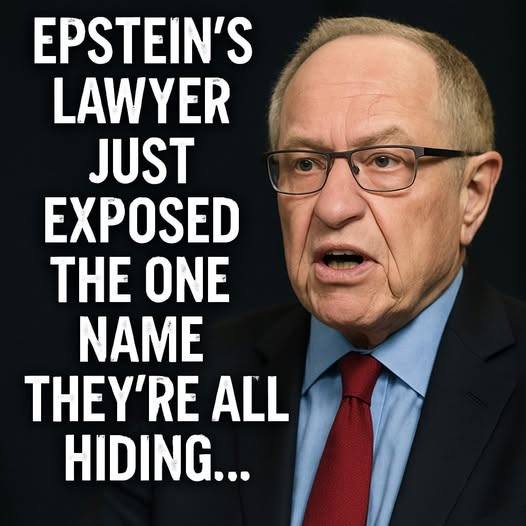The Jeffrey Epstein case, shrouded in secrecy for years through redacted documents, half-truths, and sealed testimonies, remains far from over, and now one of the most prominent figures connected to it—the man who once served as Epstein’s attorney—is speaking out. Alan Dershowitz, a renowned and often controversial lawyer, has resurfaced in an interview with Sean Spicer, making claims that have reignited public outrage and speculation.

In that interview, Dershowitz asserted that he knows the contents of Epstein’s secret client list as well as the reasons those names have been kept hidden. According to him, a judge’s confidentiality order prevents the release of the information, and this is part of what he suggests is a much larger effort to protect the powerful rather than to seek justice for victims. He went so far as to imply that many names on the list belong to extremely wealthy and influential individuals who have much to lose if their identities were revealed, saying pointedly, “It’s about protecting reputations, not seeking justice.”
His comments have fueled suspicions that the legal system is bending to safeguard elites while leaving the truth obscured. Adding to the controversy, the Biden administration recently backed away from its earlier promise to fully declassify files related to Epstein, further inflaming critics who accuse the government of selective transparency. In a vague and unsatisfying memo, the Department of Justice claimed that there was “nothing more to see,” a statement that many find implausible given the depth and breadth of unanswered questions surrounding Epstein’s network. For transparency advocates, this move felt like yet another roadblock in the search for accountability, and it has intensified demands for full disclosure.
Critics argue that the American public has the right to know exactly who may have been involved in or enabled criminal activities tied to Epstein, especially if those individuals hold positions of power and influence. In connection with the Epstein saga, Dershowitz himself has faced accusations—allegations he has firmly denied—but his recent remarks suggest there are still far more disturbing truths beneath the surface, truths that could implicate some of the most prominent figures in politics, finance, and entertainment.
His statements have reignited calls for an independent, comprehensive investigation into Epstein’s vast web of clients, associates, and enablers, something many believe was never fully pursued, particularly after Epstein’s highly controversial death in federal custody. Critics have long argued that the official investigation into Epstein’s activities left numerous loose ends, failed to fully explore his connections, and deliberately avoided certain high-profile names. For them, Dershowitz’s confirmation that he knows who is on the client list—combined with his assertion that the secrecy is meant to protect reputations—only reinforces suspicions that justice has been selectively applied.
The Epstein case has always been about more than one man’s crimes; it has served as a lens into how power can influence legal outcomes, suppress damaging information, and prioritize the protection of the elite over the pursuit of truth. Every resurfaced detail, leaked document, or public comment from someone in the know reignites the demand for answers and accountability. Advocates for transparency argue that until the entire truth is revealed—every name, every connection, every enabler—the justice system cannot claim to have fulfilled its duty to Epstein’s victims or to the public.
The continued withholding of the client list and related documents perpetuates the perception that there is one set of rules for the powerful and another for everyone else. The resurfaced interview with Dershowitz has therefore not only drawn attention back to him personally but also reopened broader questions about the integrity of the justice process in cases involving influential figures. It has become yet another flashpoint in a saga that has already toppled reputations, exposed networks of exploitation, and left a lingering distrust in the institutions tasked with upholding the law.
Until there is a transparent, independent inquiry into Epstein’s network—one free from political influence or judicial shielding—the case will remain an open wound in the American consciousness, a stark reminder of how far some will go to protect their own and how difficult it can be to uncover the full truth when immense wealth and power are at stake.





